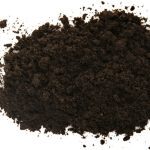
Comment

Comment: Antimicrobial resistance fight can’t be limited by borders
It’s great that countries like Canada have a plan, but that’s not enough against a global threat

Comment: War’s long shadow
Warfare ruins the environment – and not just on the front lines
Comment: The smokescreen of COP28
The global climate change event is the world’s biggest green mirage

Comment: AI can be an agricultural solution
The technology can help farmers tackle the challenges of modern farming

Comment: Bee clustering knowledge based on faulty guidance
Honeybees cluster together when it’s cold but we’ve been completely wrong about why

Time to protect Canadian-owned farmland
Young farmers and farmworker leaders call for ban on investor ownership of farmland

Comment: Government in an uncertain world
There are a couple of asks agriculture needs to make of government

Comment: For want of fresh water
Fresh water is a hidden challenge and opportunity for global supply chains

Comment: Eliminating bird flu in chicken barns
Bird flu could be eradicated by editing the genes of chickens and one study shows how

From beyond meat to the return of meat
Climate-based policies frequently ignore consumer preference and economic reality


